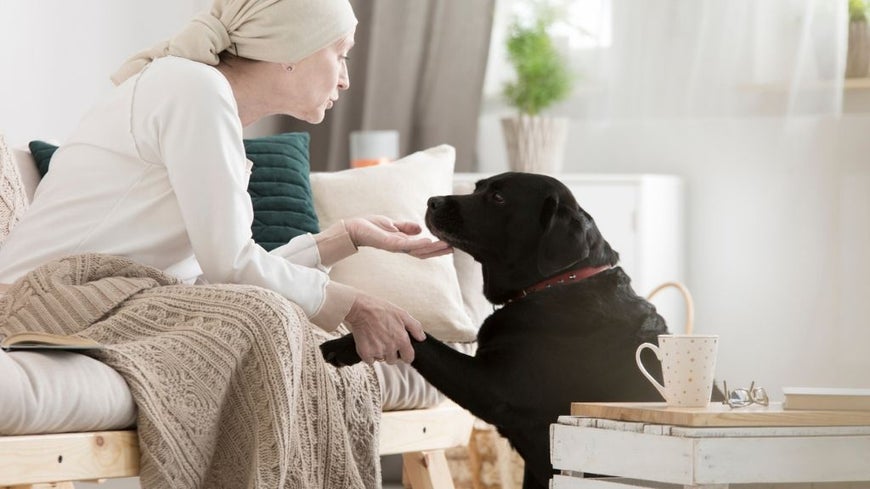Checklist: Caring for a pet while you're sick

If you’re one of the 62% of households in Australia with a pet, you’re no doubt aware of the love and comfort they can bring.
Most pets do, of course, also bring obligations. Regular feeding, grooming, and other care are part of the package. While this is likely to be something you’ve thought about before bringing a pet into your life, you may not have thought about what happens if you become unwell and are unable to meet some of those obligations.
Here, we run through the things you need to think about if the unexpected does happen. You can also download our free checklist on caring for your pets while you are ill.
Immediate care
You never know when you might fall unwell, so it’s best to ensure you have a plan for your pet’s care should the unexpected happen:
- Do you have someone you can call on in an emergency to feed your pet? Talk to family, friends, neighbours and your local community network to find someone you can rely on in an emergency.
- Is there someone who’s willing and able to walk your pet for a short period if you can’t?
- Is the person who you can call on familiar with your pet and aware of any illnesses, injuries or special needs your pet has?
- Does the pet-carer have your contact details in case of an emergency?
- Do you have a backup plan if your emergency pet-carer isn’t available?
- Does your budget allow for pet boarding if you are required to stay in hospital? If not, pet insurance can provide for emergency boarding for your pet if you are its sole carer and you are hospitalised for more than five days in a row.
Bigger picture
When thinking about the ongoing care of your pet, take into consideration things like whether your health issues are temporary or long-term and what support is available to you.
Some questions to consider are:
- If your health circumstances change, can you afford the ongoing care of your pet or should you look at re-homing options?
- Have you created a long-term solution or plan to cover the possibility that your hospital stay or illness could go on longer than expected?
The next step is to create a list of your pet’s basic needs. To access the right support, you can turn to family, friends, your local community and support organisations like RSPCA’s Community Aged Care program, which “aims to keep pets and their elderly owners happy, healthy and together in their own homes for as long as possible.”
Peace of mind
- Are your pet’s vaccinations up to date?
Some pet boarding facilities will require up-to-date vaccinations before accepting your pet, so don’t put them off. The added advantage is that your pet will always be protected against certain diseases.
- Do you have pet insurance to cover the unexpected?
Pet insurance provides peace of mind and is especially useful as you (and your pet) get older. Check that your policy covers your pet’s boarding costs if you are hospitalised. Also check the percentage of your vet bills that are covered following an accident or illness and the amount you can claim each year.
5 Apr 2019